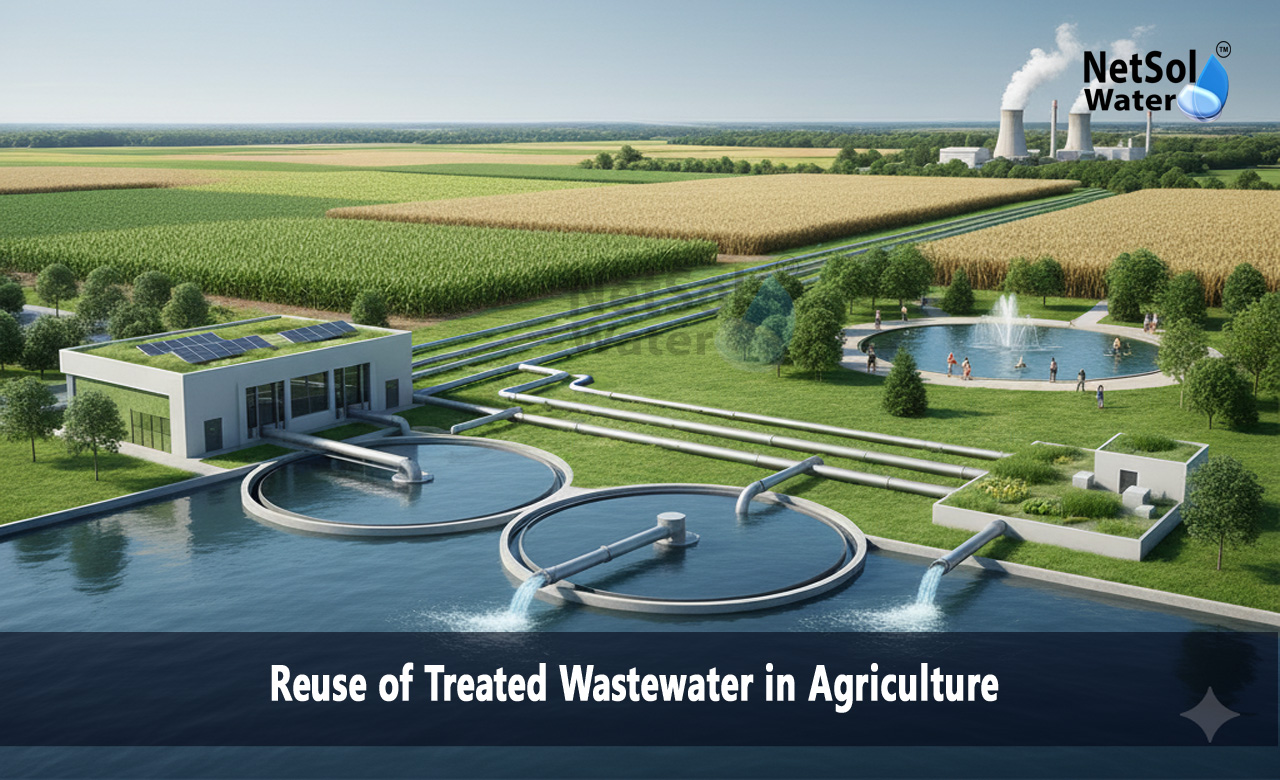Benefits of Reuse of Treated Wastewater in Agriculture
Reuse of Treated Wastewater in Agriculture offers a way to meet water needs while protecting freshwater sources. Farmers face water shortages in many regions. Treated wastewater can support crops, soils and livestock needs when managers apply it with care. This practice can reduce pressure on rivers and wells and it can keep landscapes green during dry months. Local communities can gain from steady water supply and new job options in treatment and reuse sectors. Safe reuse depends on proper treatment clear rules and regular checks. When systems match crop type, soil and local climate they work well and they last long.
1: Water Supply Security
Treated wastewater can fill gaps in water supply when rain falls less often or rivers run low. Farmers receive a steady source that they can schedule to match irrigation needs. This stability helps them plan crops and protect yields.
2: Soil Fertility and Crop Growth
Treated water often contains nutrients that plants can use. When managers test water and match it to crop needs, they can reduce use of synthetic fertilizers. This change lowers input costs for farmers and it supports steady plant growth.
3: Environmental Protection
Using treated wastewater reduces the volume of waste that flows into rivers and seas. Proper reuse cuts pollution and it helps protect nearby habitats. Communities can keep natural water bodies cleaner while using less fresh water.
Read: Sewage Treatment Plant Manufacturer
Treatment Technologies for Reuse of Treated Wastewater in Agriculture
1: Primary and Secondary Treatment
Primary treatment removes solids that settle out of water. Secondary treatment uses microbes to break down organic matter. Together these steps lower turbidity and reduce odours so the water fits many irrigation systems.
2: Advanced Treatment Steps
Advanced steps include filtration, disinfection and sometimes membrane methods. These steps reduce microbial salts and fine particles. Farmers get cleaner water that suits sensitive crops and uses such as spray irrigation.
3: Monitoring and Quality Control
Operators must test water often and keep clear records. Regular tests for pathogens, nutrients and salts help managers make safe choices. Simple checks at the farm gate help staff spot changes and act fast.
Health and Safety Measures for Reuse of Treated Wastewater in Agriculture
1: Worker Protection
Farm workers must avoid direct contact with untreated water. When managers train staff and provide protective gear they cut health risks. Clear work rules help workers follow safe steps.
2: Crop Selection and Irrigation Methods
Some crops suit treated water more than others. Managers choose crops that reduce risk when water contacts edible parts. Irrigation methods like drip lines stop water from touching leaves and fruit.
3: Post Harvest Hygiene
Farms must wash and handle produce to keep it safe for markets. Simple cleaning steps and quick cooling after harvest lower chances of contamination. Buyers value safe produce and they reward farms that keep high standards.
Economic and Resource Considerations for Reuse of Treated Wastewater in Agriculture
1: Upfront Costs and Returns
Systems need pipes, pumps and treatment units. Farmers or local groups must plan capital costs and maintenance budgets. Over time savings on fresh water and fertilizer can offset these costs.
2: Job Creation and Local Services
Reuse projects create jobs in treatment plant operation system maintenance and testing labs. Local technicians gain skills and new businesses can serve farms and towns.
3: Long Term Resource Use
When managers match water supply to crop cycles they use water more wisely. That approach preserves fresh water for long term needs and it strengthens local resilience.
Implementation Challenges and Policy Steps for Reuse of Treated Wastewater in Agriculture
1: Legal Frameworks and Standards
Clear standards guide safe use and they help markets trust reused water. Planners must set simple rules and they must fund labs to check compliance. Good rules enable growth of reuse programs.
2: Public Acceptance
People may worry about safety and taste of food grown with treated water. Outreach and transparent testing show how risks fall when systems work well. When communities see clear data they accept reuse more easily.
3: Technical Skills and Training
Managers must train staff in operation, maintenance and testing. Training builds trust and it keeps systems running well. Partnerships with local colleges and extension services help supply needed skills.
Conclusion
Reuse of treated wastewater in agriculture can boost water supply, cut costs and protect natural sources. It can also support jobs and improve soil health when teams plan well and follow safety steps. Local leaders and farm managers should consider trials that match crop type and soil conditions. If you want clear guidance on design testing or training please get in touch to request a consultation. Reuse of Treated Wastewater in Agriculture offers a practical route to long term water security and farm success. Contact us for more information or to start a project review.
Contact Netsol Water at:
Phone: +91-9650608473, Email: enquiry@netsolwater.com



